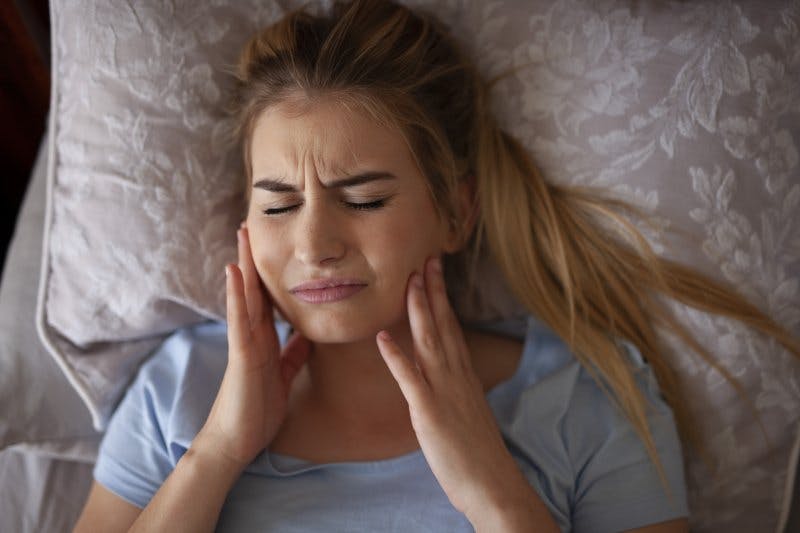
Teeth grinding (bruxism) is a condition that causes people to clench, grind, or gnash their teeth. Although it won’t cause much damage if done from time to time, it can become dangerous if teeth are ground regularly. It can result in the fracture, loosening, or loss of teeth. Do you think you suffer from this condition? It’s best to find out before the year ends while you can still take advantage of your dental insurance benefits. Read on to learn more.
How Can You Tell If You Grind Your Teeth?
In most cases, teeth grinding occurs while patients are asleep. That’s why many people are unaware that they have this condition. However, if you experience any of the following, you might suffer from bruxism.
Tooth Damage
The repetitive action of grinding your teeth can cause them to become worn down. People who have been grinding for a long time typically have teeth that are shorter with a flattened appearance along the edges. Those with severe cases of this condition can even have cracked or broken teeth.
Headaches
Did you know that teeth grinding can also cause headaches? The pressure from a constantly tight jaw can build up and result in pain. If you regularly wake up with headaches, you may clench or grind in your sleep.
Jaw Problems
Studies show a correlation between bruxism and TMD, a jaw disorder that causes pain and other issues. Evidence suggests that the strain caused by clenching and grinding can contribute to joint problems.
Bony Protrusions
Clenching and grinding can change the shape of your bone, causing some people to develop bony growths on the inside of their lower jaw underneath the tongue.
What Are Your Treatment Options?
If you suffer from bruxism, there are two ways you can improve or preserve your teeth:
Splints & Mouthguards – These devices help keep teeth separated from each other to avoid damage caused by grinding and clenching. They’re usually made of hard acrylic or soft materials.Dental Correction – If tooth wear has led to sensitivity or difficulty chewing, your dentist may reshape the chewing surfaces of your teeth or use crowns to repair the damage caused by grinding.
Why You Should Find Out Before the Year Ends
Nightguards are an excellent solution for those with bruxism. They can help keep your mouth and jaw pain-free and functional! Although night guards can be pricey, your dental insurance plan may be able to cover a percentage of the cost. If your plan covers treatments like crowns, bridges, or dentures, then it’s likely that night guards are covered as well. However, every plan is unique, so make sure you review the details of coverage. Since most dental benefits expire on December 31st (and don’t roll over into the new year), it’s a good idea to find out whether you have bruxism before the year ends so you can take advantage of your benefits.
If you think you grind your teeth at night, schedule an appointment with your dentist to confirm and treat the condition. By doing so before the year ends, you can get the most out of your dental insurance while improving your oral health!
About the Practice
Dr. David Crumpton has an impressive 26 years of experience in dentistry under his belt. He completed his dental training at the Baylor College of Dentistry. Since graduating, Dr. Crumpton has attended numerous hours of continuing education to grow his skill set and give patients the best treatment possible. If you think you have bruxism, schedule an appointment before the end of the year so you can make the most out of your dental insurance. Visit our website or call (817) 587-4177 to make an appointment with Dr. Crumpton.

